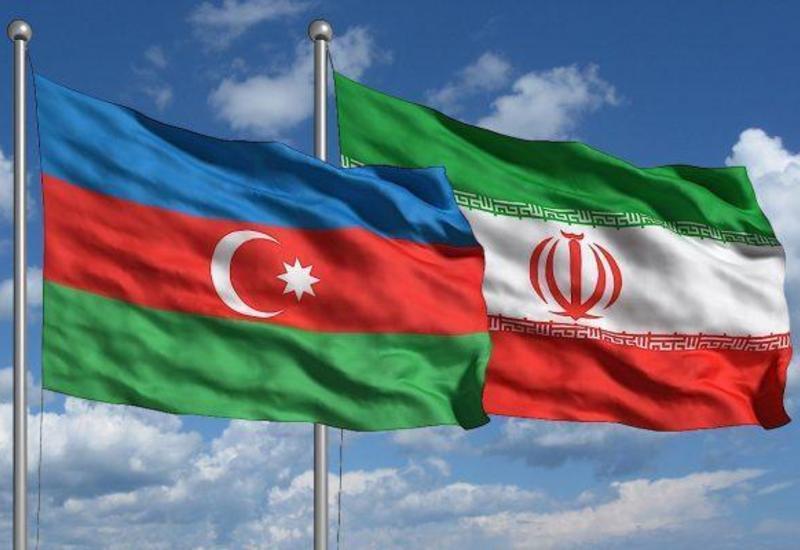Azerbaijan-Iran: From hoary overused wishful thinking to realpolitik

By Orkhan Amashov
At no point, even for a very brief period which one might have fleetingly described as an interregnum, were Azerbaijani-Iranian relations problem-free. But the timeless adage defiantly mandates in a manner no less than crystal-clear; never say never.
The recent memorandum of understanding signed between the two countries is undoubtedly of historic significance. Timing of the signing of the document, its content and prospective geopolitical ramifications that it may engender lie at the heart of the ultimate eventuality that is likely to define its place in near history.
Since the very inception of diplomatic relations between Azerbaijan and Iran, the atmosphere of mutual trust has left a lot to be desired. Many experts and those who are knowledgeable as to the subject claim, albeit with some understandable reserve, that this is the apex of the diplomatic accord between the neighbours.
The main creed of Tehran’s self-perception and the quintessence of its externally observable aspirations have not changed much. It is unlikely that those guiding the foreign policy of Iran and regularly recalibrating its lynchpins have changed their principal vision of Azerbaijan overnight. In no serious country with time-honoured traditions of diplomacy do such naiveties take place. But there is another immutable constant called ‘pragmatism”.
Azerbaijan’s victory in the Second Karabakh War and President Ilham Aliyev’s cold reason, which manifested itself in a series of carefully executed meticulous tightrope-treads have eventually compelled Tehran to succumb to the inevitable.
The true origin of Persian angst is the agony of self-knowledge. Nevertheless, the facts on the ground have happened to be too consequential to be ignored. Iran needs, for its own good, to ensure that Azerbaijan is cooperated with on a mutually beneficial basis.
From Baku’s perspective, the picture is a little more straightforward. Azerbaijan, due to its undeniably complex geopolitical surroundings, is naturally bound to have trustworthy relations with all its influential neighbours, particularly those unofficially called the Big Three, namely Turkey, Russia and Iran.
The Shusha declaration cemented the already strong and very deep relations existing with Turkey. The document signed on February 22 in Moscow on the allied interaction has provided Baku with an extra security guarantee that the northern neighbour will act in line with its obligations, amongst other elements, emanating from the November 10 ceasefire deal.
On the whole, the centrality of Azerbaijan as a player has been reinforced. As a nation equipped with the unique capacity to punch above its weight, Azerbaijan happens to find itself as a pivot within a grand scheme.
The crux of the new deal agreed, amid its simplistic provisions entails a new web of geostrategic ties that fulfil Baku’s interim objectives, and, the very scheme at large gives some assurance to Iran that it will not be left outside the geopolitical landscape created after the Second Karabakh War. One of the main objectives of Tehran was in relation to the Zangazur corridor and that it should not be left outside the big game. The communication routes stretching from its territory gives a share in this project, and it cements its place in a wider scheme.
There is nothing in the scheme that could remotely be perceived as an encumbrance to Azerbaijan’s grand vision. Firstly, it creates conditions, which in their cumulative effect, illuminate Baku’s geopolitical clout and enable it to project its power beyond what may be perceived as its natural limits. Iran, which has long been deeply, and quite often groundlessly, suspicious about Azerbaijan’s geopolitical outlook, has regained a chance to evaluate its northern neighbour’s good intentions in a proper light.
Secondly, Tehran, currently facing massive international pressure, due to its isolated state, has found itself in a position to reattach itself to a globally reputable and plausibly perceived mega-plan. Thirdly, Armenia, which has been stubbornly opposed to the idea of the Zangazur corridor, at times unconvincingly insisting on the inadmissibility of the use of the term “corridor” or, on occasion, simply attempting to prey upon its detractors’ minds by constantly inducing politically sordid rakishness, has been demonstratively shown the ultimate futility of its rigid opposition to the project.
In line with the key creed of the memorandum, the establishment of a new communications route between the East Zangazur economic region of Azerbaijan and Nakhchivan via Iran will be a win-win game for both sides. The project will necessitate new roads, railways and power lines. The new web will unite Turkey, Iran and Azerbaijan, and by virtue of involving these three key actors will add a new connectivity design fundamentally reshaping the full spectrum of the transport landscape of Eurasia.
The Zangazur corridor is Baku’s and, one may go as far as to suggest with imperturbable snob-free confidence, President Ilham Aliyev’s brainchild. The circumstances of some import have so far delayed its swift implementation. The corridor is still one of the key and most essential outcomes of the Second Karabakh War.
The recent deal with Tehran, far away from meaning the abundance of the idea, in fact, should be viewed as an additional manoeuvre to ensure its further advance.
--
Follow us on Twitter @AzerNewsAz
Here we are to serve you with news right now. It does not cost much, but worth your attention.
Choose to support open, independent, quality journalism and subscribe on a monthly basis.
By subscribing to our online newspaper, you can have full digital access to all news, analysis, and much more.
You can also follow AzerNEWS on Twitter @AzerNewsAz or Facebook @AzerNewsNewspaper
Thank you!
